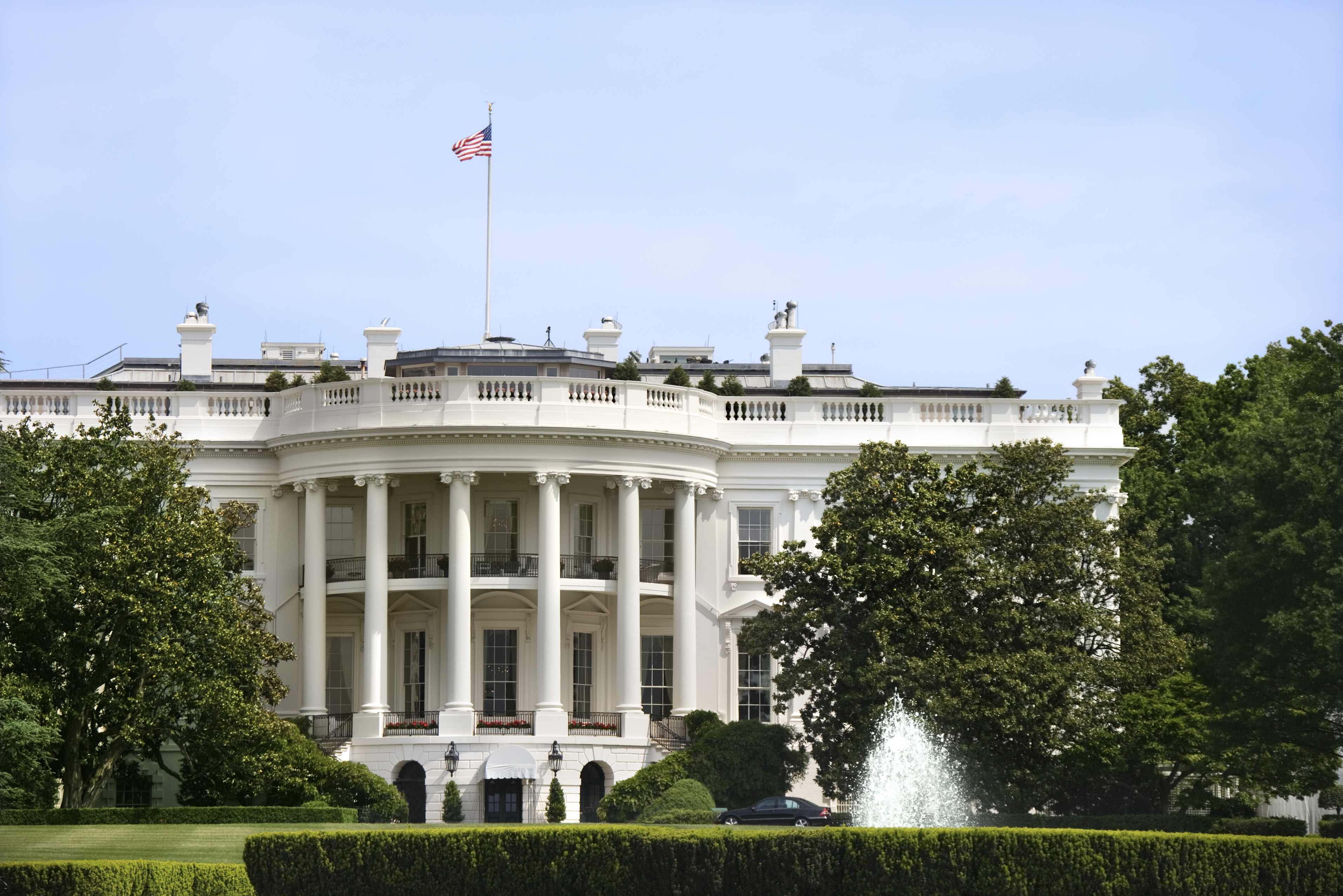A surprising Republican clean sweep
Donald Trump has been elected as the 47th President of the United States, marking his second term and making him one of only two presidents, alongside Grover Cleveland (in the 1890's), to serve non-consecutive terms. The election day saw a sharp market rally in response to Trump’s victory. The market continues to rally boosted by the Federal Reserve’s 25bps rate cut announced on November 7th. These gains reflect investor optimism about anticipated policies under Trump’s renewed administration, particularly around potential deregulation, and tax cuts.
The focus, however, is less on Trump’s victory alone and more on its scale. With Republicans securing control of the U.S. Senate and the House results still pending, a fully Republican Congress could give Trump substantial legislative power. Leading the popular vote by over 4 million, Trump holds an unexpectedly strong mandate, allowing for potentially more aggressive policy changes. Given his personality and lack of reelection constraints, such moves could support a short-term market boost but pose longer-term risks that are important to keep in mind.
This political shift aligns with recent Federal Reserve actions aimed at supporting the economy, which have been taken positively by financial markets. However, even though another 25bps cut is anticipated in December, and markets expect a further 100bps of easing in 2025, future rate decisions are now less certain, as Trump’s proposed economic policies may increase inflation and deficits.
Short-term optimism, medium term caution.
Although it's too soon to make a definitive assessment, from a top-down view, the unexpectedly decisive election outcome brings two positives for US financial assets:
- Tax cuts could boost corporate earnings and business growth, with markets responding positively. Financial deregulation also seems likely, fueling investor optimism.
- Protectionist measures and generous fiscal policy could support global growth, though they heighten inflation and interest rate risks.
While proposed tax cuts could provide a near-term boost to corporate earnings and overall economic growth, they present notable risks due to an already high deficit. With the U.S. debt-to-GDP ratio exceeding 100% and interest rates at 4.5%, there is limited fiscal flexibility. Further tax cuts would increase the deficit, which would pressure bond markets, particularly if inflation rises and the Federal Reserve is forced to reconsider its interest rate stance.
Trump's “America First” approach could also strain global trade relationships if it became "America Only". Tariffs on foreign goods may act as a hidden tax on U.S. consumers, raising the cost of imported goods and potentially driving up inflation. This inflation risk, coupled with high rates, could restrict the Fed’s ability to lower interest rates further. In response, bond yields may rise, negatively impacting sectors like utilities, which are highly sensitive to interest rate changes. If the expected AI-driven rise in energy demand takes longer to materialize, utility valuations could be further impacted.
The US dollar is likely to keep its strength, particularly against the euro.
Trump's policies could allow the dollar to continue to appreciate against the euro, aided by weak economic indicators in Europe, particularly Germany. This dollar strength could impact emerging markets by increasing their debt servicing costs on dollar-denominated debt, potentially leading to a slowdown in EM growth. Gold prices might also decline as a strong USD acts as a headwind and the economic outlook looks brighter.
We remain overweight equities and favour the U.S. over other regions
We have favoured equities since the beginning of the year and have advocated an overweight position in the US. Unlike many market participants, we did not anticipate a recession and argued that US equities tend to do well in election years as the incumbents do as much as they can to keep the economy as strong as possible to stay in power. This year has been no exception.
More recently, as inflation has stabilized closer to Central Bank targets, we have seen reductions in interest rates across many markets, including from the US Federal reserve and we know better than to " fight the Fed" when it's providing stimulus.
Not only is this stimulus likely to stay in the short term, but it is also expected to be magnified by the announced policies of the future president.
In the short term, we expect equities, particularly the more cyclical ones (consumer discretionary, financials, materials, industrials, etc) to outperform the more defensive sectors (food, beverages, utilities, etc).
The US domestic economy is also likely to benefit, and we have seen small and mid-size companies rally aggressively. We are more cautious to chase that rally as half of those companies are not generating revenues and reality is likely to catch up eventually. We are equally cautious of the so-called value stocks.
We are not making drastic changes to our portfolios
The market’s current enthusiasm around Trump’s policies may overlook potential downsides. If tariffs are fully implemented, the benefits of corporate tax cuts could be partially offset by increased costs for U.S. consumers, leading to inflationary pressures that weaken overall economic growth. Considering these factors, it’s crucial to balance optimism with caution, closely monitoring policy developments and market reactions.
For now, and given that we already have an overweight in stocks and in the US, we are not making drastic changes to our portfolios but want to take the next few days to assess the market reaction and potentially fine-tune after that. We remain vigilant on the evolving political and economic landscape. The timing and substance of Trump's agenda implementation, along with the influence of his advisers, will play critical roles in shaping the economic outlook and, consequently, investment strategies.
- Agenda priorities Key agenda items like tax cuts, deregulation, infrastructure spending, and tariffs will impact different sectors and asset classes. If tax cuts and deregulation are prioritized, U.S. equities, particularly in corporate and growth sectors, might see short-term gains. However, if protectionist trade policies take precedence, this could weigh on global growth, impacting international markets and emerging markets more heavily.
- Advisers' influence: Trump’s political and economic advisers will strongly shape his policies. Advisers supporting aggressive stimulus and deregulation could drive pro-growth policies, boosting sectors like finance and energy. Conversely, cautious advisers favoring balanced growth might push for a more restrained approach, leading to more moderate market reactions.
- Pace and intensity of policy push: Trump’s approach to his agenda will affect market confidence. A rapid push on trade restrictions could increase global market volatility, while a gradual rollout might allow smoother adjustments. Prioritizing infrastructure investment could benefit sectors like industrials and materials, though the economic impact may take time.
- Inflation and interest rate outlook: Policy decisions around spending, taxation, and trade will likely affect inflation and the Federal Reserve's interest rate policy. For instance, aggressive fiscal stimulus could lead to inflationary pressures, potentially limiting the Fed's ability to cut rates further. Rising rates may favor shorter duration bonds and specific sectors while negatively impacting traditionally interest-sensitive areas like utilities and real estate.
Closely monitoring these factors will enable timely portfolio adjustments, aligning with economic shifts and avoiding premature moves based on early policy signals.
Your financial vision, our expertise
This article is produced by Rothschild & Co Bank AG, Zollikerstrasse 181, 8034 Zurich, for information and marketing purposes only. It does not constitute a personal recommendation, an advice, an offer or an invitation to buy or sell securities or any other banking or investment product. Nothing in this article constitutes legal, accounting or tax advice. Although the information and data herein are obtained from sources believed to be reliable, no representation or warranty, expressed or implied, is or will be made and save in the case of fraud, no responsibility or liability is or will be accepted by Rothschild & Co Bank AG as to or in relation to the fairness, accuracy or completeness of this document or the information forming the basis of this article or for any reliance placed on this article by any person whatsoever.
In particular, no representation or warranty is given as to the achievement or reasonableness of any future projections, targets, estimates or forecasts contained in this articlet. Furthermore, all opinions and data used in this articlet are subject to change without prior notice. Law or other regulation may restrict the distribution of this article in certain jurisdictions. Accordingly, recipients of this article should inform themselves about and observe all applicable legal and regulatory requirements. Neither this article nor any copy thereof may be sent to or taken into the United States or distributed in the United States or to a US person. Rothschild & Co Bank AG is authorised and regulated by the Swiss Financial Market Supervisory Authority FINMA.




